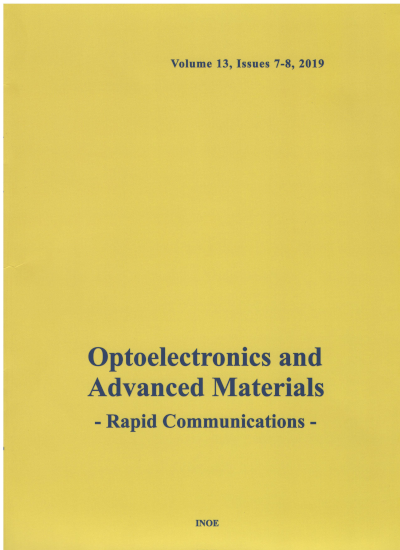Abstract
This paper studied the feasibility of statistical approach to aid in the development of the fiber Bragg grating (FBG) temperature monitoring system using analysis of variance approach. Upon completion, the sensitivity of the sensor measured for DI water and palm oil is 0.00149 dBm/ ⁰C and 0.0273 dBm/ ⁰C, respectively. In terms of the wavelength shift, the sensitivity of 13.1 pm/ ⁰C and 25.29 pm/ ⁰C were achieved for DI water and palm oil, respectively. The coefficients of determination (R2) for temperature variations relationships were 0.986 for DI water and 0.9806 for palm oil. This study showed the great potential of statistical approach in predicting the sensor device performance..
Keywords
Fiber-optic, Fiber-optic sensor, Fiber Bragg grating, Temperature measurement, Sensor applications.
Citation
H. HAROON, A. KAREEM, Statistical analysis on impact of temperature to fiber Bragg grating sensor performance, Optoelectronics and Advanced Materials - Rapid Communications, 13, 5-6, May-June 2019, pp.290-294 (2019).
Submitted at: Sept. 26, 2018
Accepted at: June 14, 2019
